Steel Cooling Tanks
Product Details:
- Usage Industrial
- Product Type Cooling Tanks
- Color Sliver
- Material Steel
- Click to View more
Steel Cooling Tanks Price And Quantity
- 1 Piece
Steel Cooling Tanks Product Specifications
- Sliver
- Cooling Tanks
- Steel
- Industrial
Steel Cooling Tanks Trade Information
- 100 Piece Per Week
- 1 Week
- Western Europe Middle East Africa Asia Australia Central America North America South America Eastern Europe
- All India
Product Description
Steel cooling tanks are robust, corrosion-resistant containers used to effectively cool and regulate the temperature of liquids in a variety of industries. They are built of high-quality stainless steel. For precise cooling, these tanks have insulation and temperature-controlling devices like jackets or refrigeration units. They encourage temperature stability, ensuring steady cooling and product quality preservation. Steel cooling tanks are adaptable and appropriate for a variety of applications due to their customizable size, capacity, and cooling capacity options. They are excellent for industries including food processing, beverage production, pharmaceuticals, and more because of their hygienic design, simple maintenance, and long lifespan. For industrial processes, steel cooling tanks offer effective and dependable cooling solutions.
The following are characteristics and advantages frequently linked to steel cooling tanks:
Features of Steel Cooling Tanks:
1. Steel cooling tanks are made of high-quality stainless steel, assuring their longevity, resistance to corrosion, and compliance with hygiene regulations in a variety of sectors.
2. Insulation: To reduce heat transmission and keep the interior of steel cooling tanks at the proper temperature, many of them are lined with insulation.
4. Temperature Control: Steel cooling tanks frequently have temperature control elements like digital thermostats or controls that let operators set and maintain precise cooling temperatures.
5. Agitation or mixing: To encourage uniform cooling and avoid the development of temperature gradients or hot spots, certain cooling tanks are fitted with an agitator or mixing mechanism.
6. Cooling tanks have inlet and outlet ports for the admission and exit of liquids and other substances. These ports allow for simple connection to other pieces of machinery or pipes and can be tailored to fit particular industrial operations.
Benefits of Steel Cooling Tanks:
1. Steel cooling tanks have effective cooling capabilities that enable liquids or other substances to be quickly cooled to the correct temperatures. This is essential for protecting product quality and preserving the integrity of the manufacturing process.
2. Temperature Stability: By offering insulation and precise temperature management, these tanks assist preserve temperature stability by maintaining constant cooling and preventing temperature swings.
3. Designing cooling tanks with stainless steel ensures easy cleaning, corrosion resistance, and compliance with hygiene regulations in sectors including food & beverage, pharmaceuticals, and cosmetics.
4. Steel cooling tanks are renowned for their extended lifespans, resilience to wear and tear, and durability. They are capable of withstanding arduous industrial settings and numerous cooling cycles.
5. Flexibility: Cooling tanks are flexible and can be utilised in a variety of settings, including brewing, dairy production, food processing, chemical processing, and more.
6. Steel cooling tanks can be made to order in terms of size, capacity, cooling capacity, and features to satisfy particular cooling needs and integrate into current industrial processes.
7. Simple Cleaning and Maintenance: Stainless steel cooling tanks have smooth surfaces that resist contamination and make sanitization procedures easier.
Steel cooling tanks provide precise and effective cooling capabilities that guarantee product quality and temperature stability in a variety of industries. They are crucial pieces of equipment for industrial cooling applications because of their dependability, hygienic design, adaptability, and simplicity of maintenance.

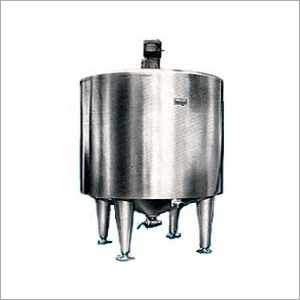
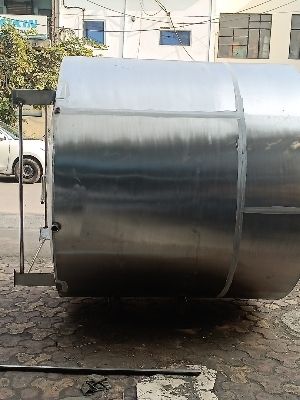
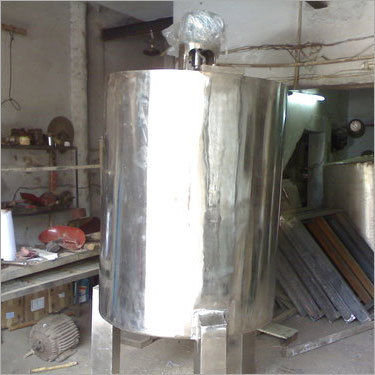
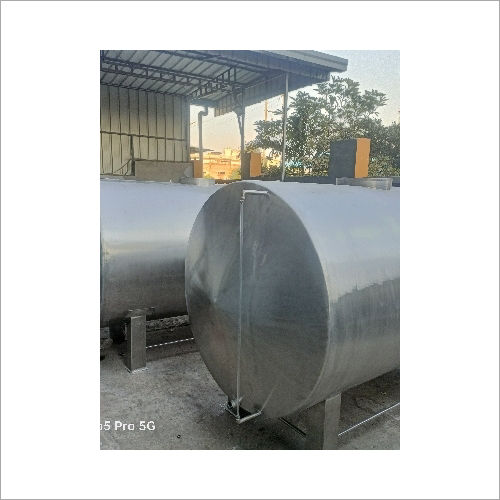
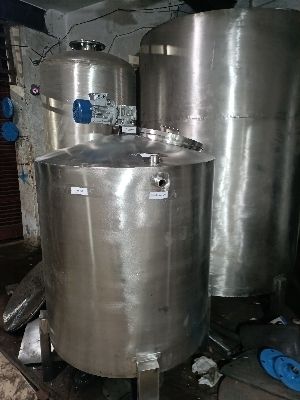


 Send Inquiry
Send Inquiry Send SMS
Send SMS Call Me Free
Call Me Free